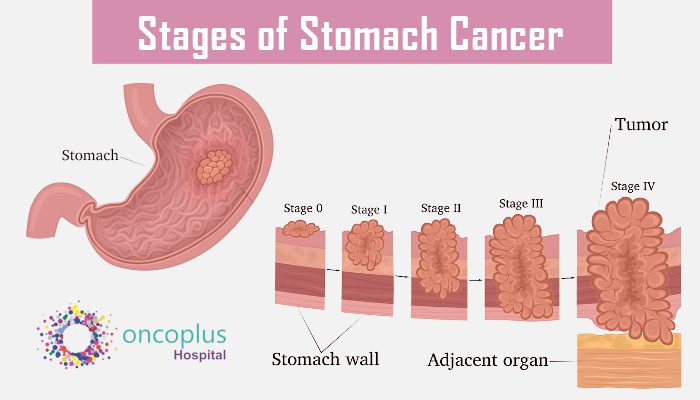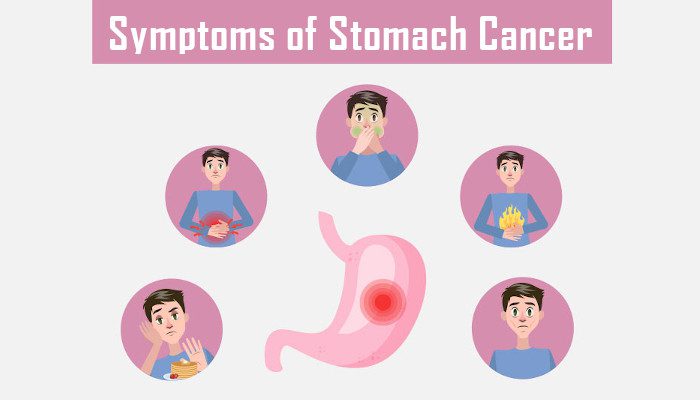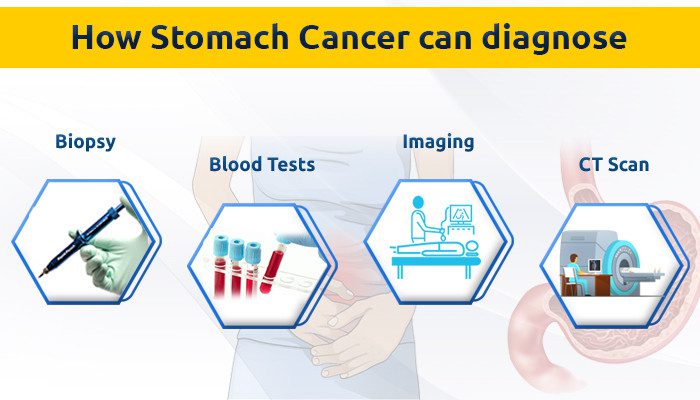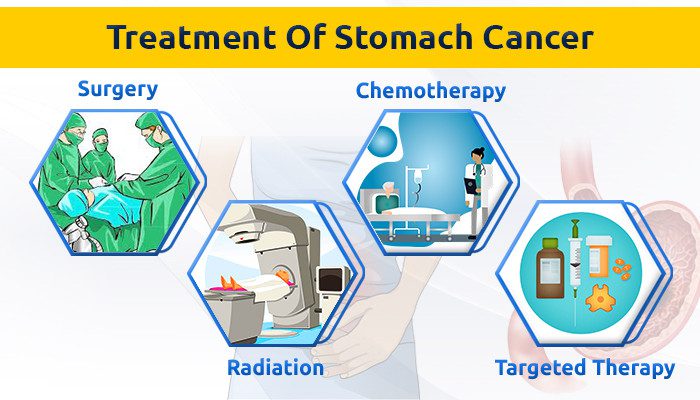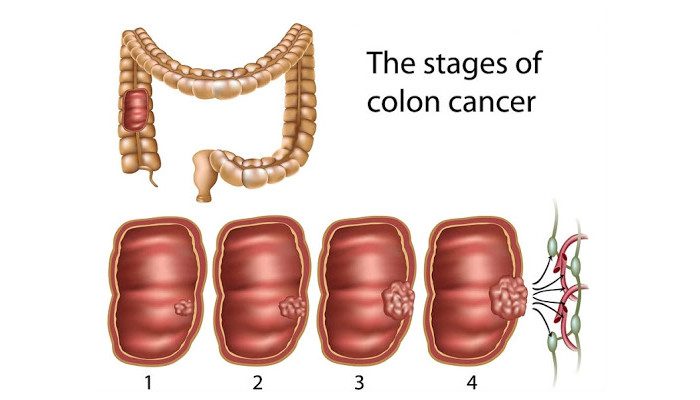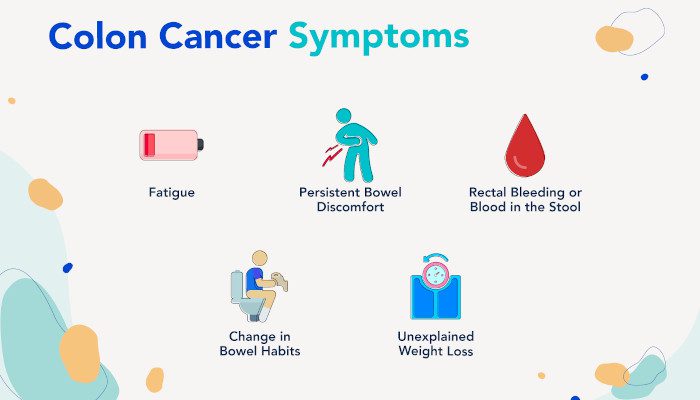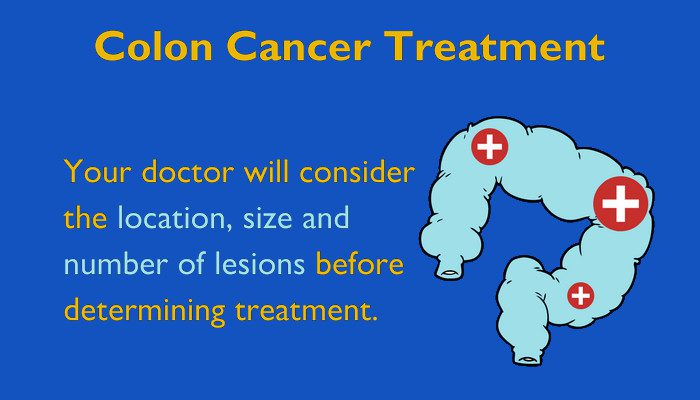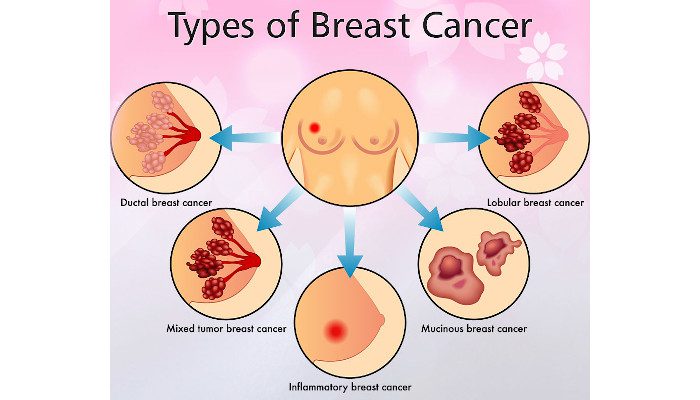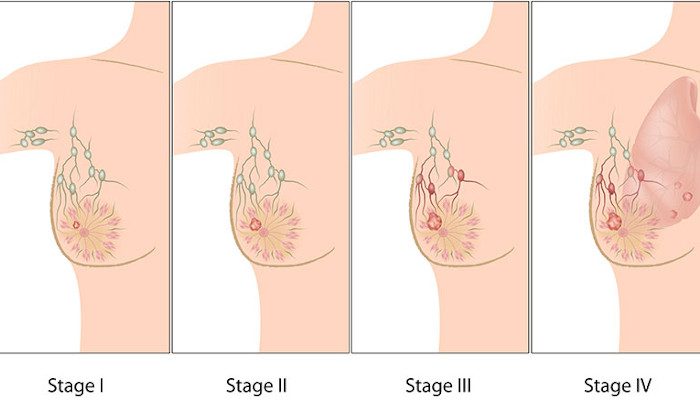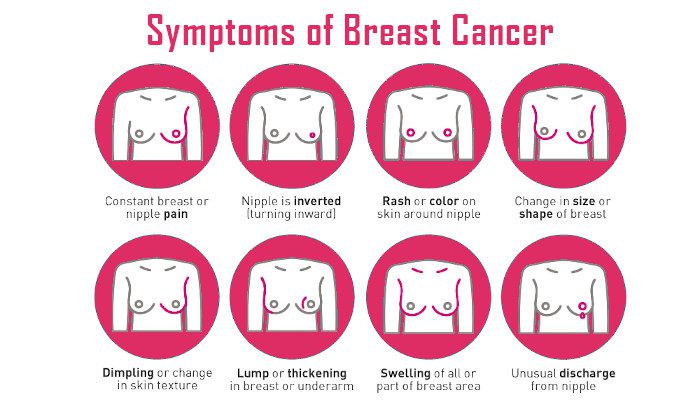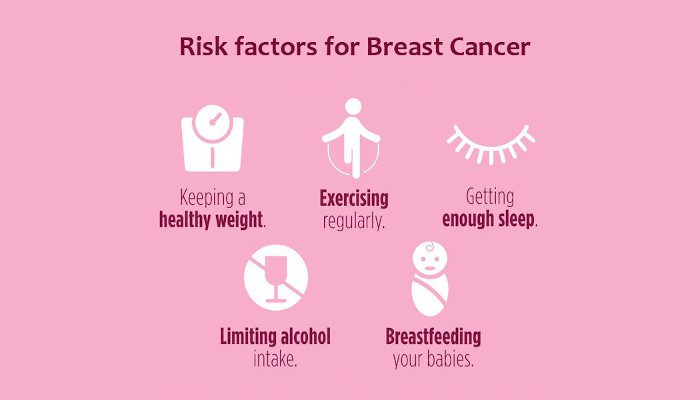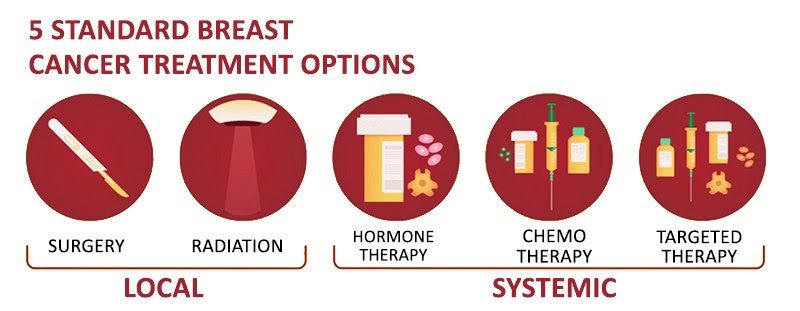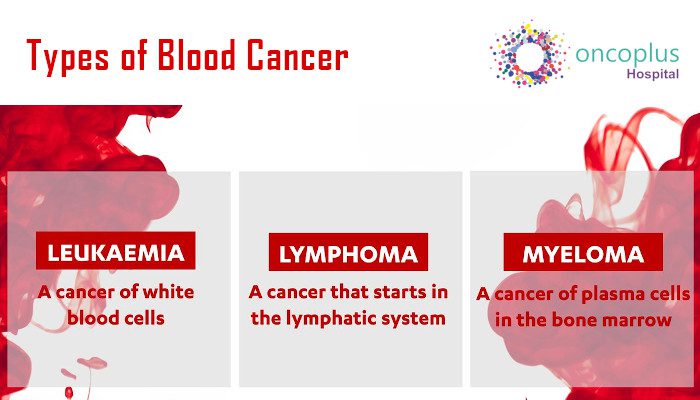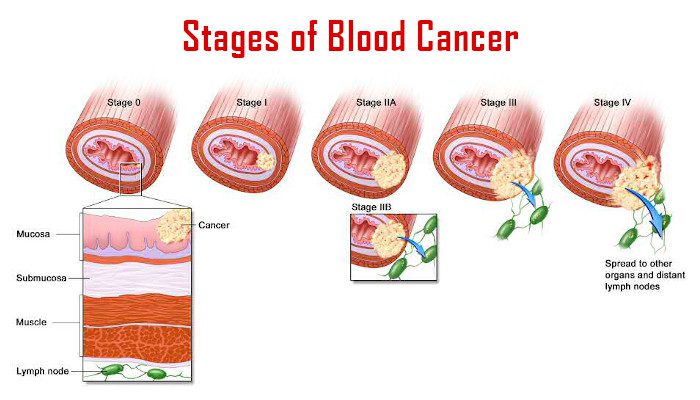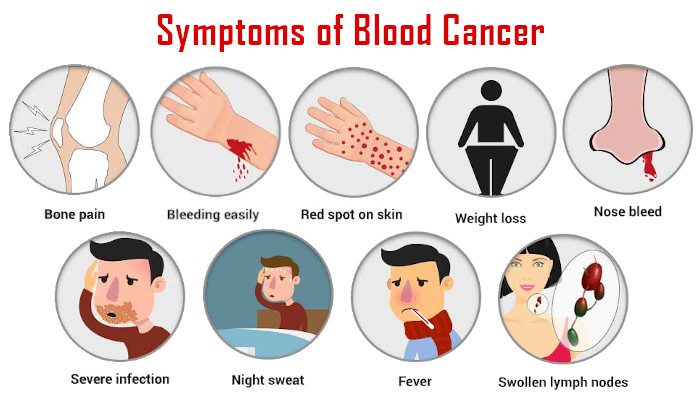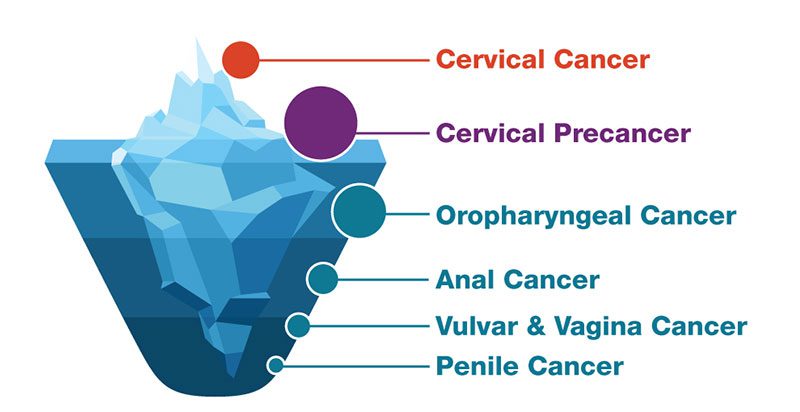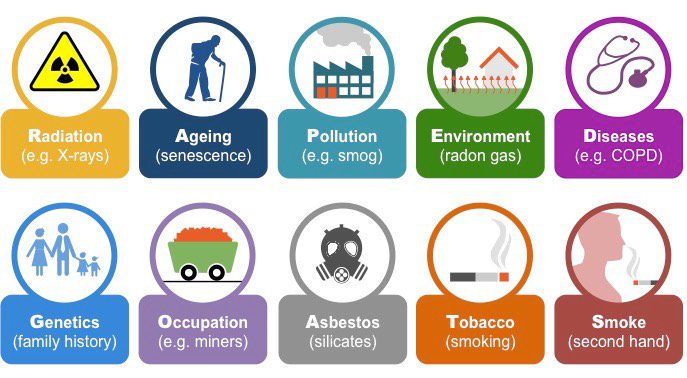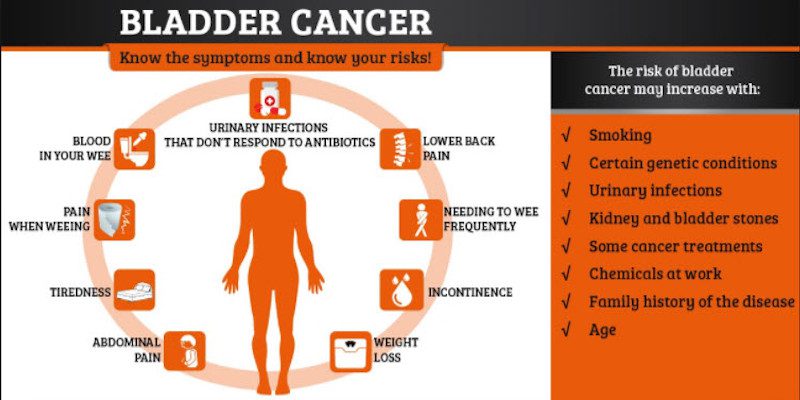Questions about Cancer
We are scared about terminal cancer that we ignore any type of information that’s related to it. Today we’ll debunk the most common questions about cancer and help you provide an answer that will help you stay informed.
- Smoking and tobacco consumption
- Exposure to the Sun or Industrial radiation
- Diet and physical activity
- Viruses and other infections
- Tobacco Consumption
- Lack of Physical activity
- Obesity
- Improper Diet
- Alcohol Use
- Sun Exposure
- Industrial exposure of chemicals like radon, leads and asbestos
- Exposure of Infection such as hepatitis, HPV and HIV
Cancer can not be prevented but there are some changes you can do to be less prone to developing it. Here are some significant changes:
Tobacco: Cigarettes, pipes, cigars and oral tobacco products must be ceased from use. It is one of the largest cause of causing cancer
Alcohol: Ethanol found in many alcoholic drinks like beers, wines or liquors are linked to a higher risk of causing a certain type of cancer. Hence alcohol consumption must be limited or completely ceased for better.
Diet: Food that is rich in nutrients and fibre are one of the biggest factors in preventing cancer. However limiting your diet to processed meat, sugar-sweetened beverages or highly processed food is highly risky for causing cancer.
Cancer is grouped into four major stages. Some even have a 0 stage. Here’s what each stage tells you:
- Stage 0: It’s the mild stage where the cancer is located and it hasn’t spread to any nearby tissues. It’s possible to cure stage 0 cancers.
- Stage 1: It represents a sign of a small tumor or cancer that hasn’t grown thoroughly in the tissues. It’s called early-stage cancer.
- Stage 2 & 3: This stage is pretty severe and represents large tumors formation that’s grown deeply to the surrounding tissues. The possibility of spreading of cancer can be to lymph nodes also. However, there are fewer chances of spreading it to other organs or parts of the body.
- Stage 4: It’s the most concerning phase of cancer where cancer has spread to other parts of organs. It’s known as the most advanced stage of cancer.
There are rare cases of symptoms showcasing any symptoms, but it doesn’t apply to every kind. The shared signs of symptoms are limited to certain types and the location they are formed. Due to the tumour increase in size, it affects the neighbouring tissue or organ of the body by which doctors can guess the type of cancer but there’s no optimal sign that warns you about cancer. It is because many cancers only show any changes in the body after being too advanced. Here are some of the common signs and symptoms of cancer:
- Abnormal weight loss
- Pain and discomfort
- Fatigue & Fever
- Skin Changes
- Bowel movement or bladder function
- Abnormal bleeding
- Unhealing sores
- Occurrence of a lump in any parts of the body
- Indigestion
The three main treatments of cancers are surgery, chemotherapy and radiation. With a few cases of cancer, any of the treatment might work while other types might need all three of them. The right treatment for cancer mostly varies with the cancer type and position where it developed and also its stage. Other factors that are significant are the health of the patient, its side effects to the treatment and many more.
Yes! Each type of cancer treatment comes with different types of side effects. It’s difficult to say which side effects you’ll suffer from. However, there are treatments available for curing or decreasing the pain caused by side effects. Cancer treatment is tough for many along with the side effects it can turn extremely hard to manage. But the side effects are not always severe, they are mild and can be treated too. Here are some of the most common side effects of cancer:
Chemotherapy side effects
- Nausea and vomiting
- Loss of appetite
- Hair loss
- Mouth Sores
- Anemia
- Higher risk of infections
- Radiation side effects
- Skin irritation
- Fatigue
What Is Stomach Cancer?
It occurs when abnormal cells or cancerous cells start on the linings of the stomach, and the most common stomach cancer is adenocarcinoma.
Types
- Adenocarcinoma: one of stomach cancer types that develop from the inner linings of the stomach; the most common type of it
- Lymphoma: a cancer of the immune system that starts where the lymphatic tissues are situated, such as the stomach; it occurs rarely
- A gastrointestinal stromal tumor (GIST): a type of cancer in the stomach that develops in the cells (interstitial cells of Cajal) of the stomach wall; it can be a benign or metastatic form of cancer.
- Carcinoid tumor: is a type of neuroendocrine tumor that develops in the digestive tract; it grows slowly and manifests symptoms on its later stage
Stages
How many stages of it are there? There are five stomach cancer stages, which define the severity and extent of cancer.
- Stage 0 (Carcinoma in situ): a group of abnormal cells (high-grade dysplasia) is present in the lining of the stomach, or on the top layer of cells of the mucosa
- Stage I: the tumor from the top layer of cells of the mucosa has reached the layers below: lamina propria, muscularis mucosa, or submucosa; it may not or may have lymph node involvement (1-2 nodes)
- Stage II: cancer cells have extended to the deeper layers of the stomach and may not or may have lymph node involvement (1-15 lymph nodes)
- Stage III: it can involve all stomach layers, has spread to nearby organs and structures, or adjacent lymph node involvement (1to > 16 lymph nodes)
- Stage IV: cancer cells have spread to all stomach layers, and may not or may have lymph node involvement. But has already reached distant organs such as the brain, lungs, liver, or peritoneum.
Symptoms
- The bloated feeling after food ingestion
- Heartburn
- Indigestion
- Mild nausea
- Loss of desire for food
symptoms in advance stages:
- Persistent vomiting
- Stomach pain
- Blood in the stool- a sign of bleeding in the digestive tract
- Unexplained weight loss
- Difficulty in swallowing
- Jaundice- the skin, eyes, and mucous membranes become yellow
- Ascites- accumulation of fluid in the abdomen
Risks
Who Gets it? There are various factors on how a person can develop cancer in the stomach. Here are some risks:
- Family history of stomach cancer
- Male gender
- Obesity
- Old age
- Diet high in salt and smoked foods
- Less intake of fruits and vegetables
- Eating foods that are not prepared well and improperly stored
- Smoking
- Stomach diseases
- Chronic gastritis: chronic inflammation in the stomach
- Polyps in the stomach
- Helicobacter pylori infection in the stomach
- Pernicious anemia
- Intestinal metaplasia
- Epstein-Barr Virus
Book an appointment with Oncology experts at Oncoplus Cancer care.
Diagnosis
How it is detected? Cancer in the stomach is detected by an assessment from the doctor and undergoing tests or procedures that will guide doctors in stomach cancer diagnosis and staging.
- Obtaining history and physical assessment: the physician will ask about stomach cancer symptoms that you have experienced and obtain data if you have stomach cancer risk factors. The physician will perform a physical assessment such as palpation of the abdomen to determine if you have stomach cancer signs.
- Upper Endoscopy: the leading test for stomach cancer diagnosis. Through upper endoscopy, the doctor can visualize the linings of the esophagus, stomach, and part of the small intestines.
- Biopsy If any unusual growth or abnormal areas is seen during endoscopy, the doctor can take a small sample of tissues that will be sent to the laboratory to check for the presence of cancer cells.
- Laboratory tests
- Complete blood count (CBC): to check for decreased hemoglobin levels, it could be due to bleeding in the digestive tract
- Fecal occult blood test: to determine the presence of blood in the stool that cannot be seen by the naked eyes
- Imaging tests: done to determine if a suspected part of the body is cancerous, the extent of cancer, or to evaluate if the treatment has been effective to it.
- Chest X-ray
- Positron Emission Tomography (PET) Scan
- Magnetic Resonance Imaging (MRI)
- CT-scan
- Upper GI series
Book an appointment with the best kidney cancer doctors in Delhi for Kidney Cancer Treatment
Treatment
- Surgery
- Endoscopic resection: it treatment that is performed to a very early stage of cancer in the stomach. The doctor will use an endoscope and pass it through the mouth going down the stomach, and then surgical instruments are inserted into the endoscope to remove the tumor and some adjacent healthy cells on the stomach linings.
- Subtotal (Partial) Gastrectomy: surgical removal of the part of the stomach with cancer including adjacent lymph nodes, organs, and structures close to the tumor.
- Total Gastrectomy: surgical removal of the whole stomach, adjacent lymph nodes, some parts of the esophagus, some part of the small intestine or the duodenum, and nearby tissues. The remaining esophagus will be connected to the small intestine.
- Radiation therapy: it treatment that utilizes high energy x-rays to eradicate cancer cells and stop their growth
- External radiation therapy
- Internal radiation therapy
- Chemotherapy: uses chemicals to eliminate cancer in the stomach
- Neoadjuvant chemotherapy: causes the tumor to shrink for easy removal
- Adjuvant chemotherapy: used after surgical intervention to eliminate remaining cancer cells in the stomach
- Targeted therapy: another stomach cancer treatment that uses medications that strike specific cancer cells and refraining healthy cells.
- Monoclonal antibody therapy: uses antibodies from a laboratory, and they attach to substances that sustain the growth of cancer cells, thus killing the cancer cells and inhibiting their growth and reproduction.
- Multikinase inhibitors are small-molecule drugs that go inside the cancer cells to disrupt the multiple protein signals to stop their growth and reproduction. Other drugs have angiogenesis inhibitor effects that stop new blood vessel formation, which tumors needed to flourish.
Book an appointment with the Best Cancer Specialist at Oncoplus Hospital.
What is Colon Cancer?
It is a disease wherein cancer cells develop in the tissues of the colon.
Types
- Adenocarcinomas: most common cancer type in colon and rectum, which form from mucus cells
- Carcinoid Tumors: develops from the hormone-making cells in the intestines
- Lymphomas: develops from the lymph nodes or in the colon
- Sarcomas: develops in the soft tissues (muscles) of the colon
- Gastrointestinal stromal tumors (GIST): develops rarely in the colon, starts as a benign tumor then eventually becomes cancerous
Stages
- Stage 0 (Carcinoma in Situ): cancer cells are confined in the innermost layer (mucosa) of the colon
- Stage I: Cancer cells in the mucosa have invaded the submucosa or to the muscle layer of the colon wall
- Stage II
- Stage IIA: cancer cells have invaded the muscle layer and the outermost layer (serosa) of the colon or rectum
- Stage IIB: cancer cells have invaded the muscle layer of the colon lining and have reached the tissues surrounding the organs of the abdomen- called the visceral peritoneum
- Stage IIC: Cancer cells have invaded the wall of the colon or rectum and have reached nearby structures
- Stage III
- Stage IIIA: cancer has reached the inner lining or the muscle layers of the intestine; with lymph node involvement: 1-3 or cancer nodules in the tissues surrounding the colon or rectum
- Stage IIIB: cancer has reached the bowel wall or to adjacent organs; with lymph node involvement: 1-3 or cancer nodules in the tissues surrounding the colon or rectum
- Stage IIIC: regardless of how extensive the tumor has grown, cancer cells have reached 4 or more lymph nodes
- Stage IV
- Stage IVA: Cancer has reached one distant organ of the body such as the ovary, liver, or lungs.
- Stage IVB: The tumor has reached more than one distant part of the body
- Stage IVC: the tumor has reached the peritoneum and may have affected other parts or organs of the body.
Symptoms
- Unexplained weight loss
- Changes in bowel habits
- Diarrhea or constipation
- Blood in the stool (bright red or dark red)
- A feeling of incomplete bowel emptying
- Stools have become slender
- Abdominal discomfort: frequent gas pains, feeling bloated, or cramps
- Body weakness
- Vomiting
Risk Factors
- Family history of colon or rectal cancer: first degree relative with colon or rectal cancer
- Previous history of colon cancer, rectal cancer, ovarian cancer, or colorectal polyps
- Inherited gene abnormalities: such as Familial adenomatous polyposis (FAP) or Hereditary polyposis colorectal cancer (HNPCC)
- Having an inflammatory disease in the colon: such as chronic ulcerative colitis and Crohn’s disease
- Heavy alcohol consumption: consuming 3 or more drinks each day
- Cigarette smoking
- Obesity
- Black race
- Older age: as people age, they are more prone to it
- Food consumption of low in fiber and high in fat
- Previous radiation therapy: previous radiation treatment for cancer on the abdomen, increases the risk for cancer in the colon
Book an appointment with Oncology experts at Oncoplus Cancer care.
Diagnosis
Here’s some it test performed or ordered by the physician to identify cancer in the colon:
- Obtaining history and physical assessment: history of diseases, treatments underwent, health habits if there are changes in bowel movements or any unusualities in the body; the doctor performs a physical assessment to check any signs of illness.
- Digital Rectal Exam (DRE): a physician examines the rectum by inserting of gloved and lubricated finger to check for any unusual growths.
- Fecal occult blood test (FOBT): a colon cancer test wherein stool specimen will be sent to the laboratory and check using a microscope for the presence of blood
- Barium Enema or Lower GI series: a procedure for its diagnosis that involves injecting a liquid (which contains barium that creates a coating to colon linings) into the rectum then an x-ray is taken. It generates a clear image structure of the colon.
- Sigmoidoscopy: uses a thin, flexible lighted tube with a lens- known as a sigmoidoscope and inserted through the rectum to visualize the rectum and the lower colon for any abnormal growths or areas. If abnormal growths are noted, it uses instruments to obtain tissue samples for biopsy.
- Colonoscopy: a test for its diagnosis that uses a thin, flexible lighted tube with a camera- known as a colonoscope and inserted through the rectum to examine the rectum and colon for any unusual growth, abnormal areas, or signs of cancer. If unusual growth is noted, it uses tools to obtain tissue samples for biopsy purposes.
- Biopsy: a colon cancer test wherein tissue samples are taken through sigmoidoscopy or colonoscopy and then sent to the laboratory for biopsy.
it tests that may be used for the staging of cancer:
- CT-scan
- Magnetic Resonance Imaging (MRI)
- PET scan (Positron emission tomography scan)
- Chest X-ray
- Complete Blood Count (CBC)
- Carcinoembryonic antigen (CEA) assay
Book an appointment with the best kidney cancer doctors in Delhi for Kidney Cancer Treatment
Treatment Options
- It Surgery: surgical removal of the colon or a part of it that has cancer
- Polypectomy: performed during colonoscopy, if a polyp (small growth on the colon lining) if found.
- Local Excision: one of the colon cancer treatment options that are performed by removal of the tumor and some tissues of the rectal wall. It is done through an anal or rectal approach.
- Hemicolectomy: a colon cancer surgery that involves removal of the cancerous part of the colon including some healthy segments of the colon on both ends. The remaining segments of the colon will be anastomosed.
- Total colectomy: involves the removal of the entire colon. This procedure is also done for familial adenomatous polyposis or inflammatory bowel disease.
- Chemotherapy: it treatment that kills cancer by inhibiting cell growth and reproduction.
- Systemic chemotherapy
- Regional chemotherapy
- Radiation Therapy: it treatment that utilizes high-energy x-rays to kill cancer cells
- External radiation therapy
- Internal radiation therapy
Book an appointment with the Best Cancer Specialist at Oncoplus Hospital.
Breast Cancer-stay aware:Breast cancer occurs when there is an alteration of cellular growth and production in the breasts that can affect and spread to other organs of the body. Breast cancer can evolve in breast lobules, ducts, fatty tissues, or fibrous connective tissue.
Types of Breast Cancer
Here are some breast cancer types:
- Ductal Carcinoma in situ (DCIS): a non-invasive type of breast cancer and not life-threatening but requires treatment. Cancer has started inside the milk ducts but has not affected adjacent breast tissues.
- Lobular carcinoma in situ (LCIS): cancer cells developed in the breast lobules (glands that produce milk) but have not spread on surrounding tissues.
- Invasive ductal carcinoma or infiltrating ductal carcinoma: cancer developed in milk ducts and has invaded surrounding breast tissues, and is the most common type of breast cancer.
- Invasive lobular carcinoma or infiltrating lobular carcinoma: cancer that is formed in the breast lobule, where milk is produced and has spread to adjacent breast tissues.
- Inflammatory breast cancer: a rare and aggressive type of breast cancer; it starts with redness and swelling; it spreads rapidly within a few hours to a few days. Cancer cells obstruct lymph nodes in the breast, and lymphatic vessels are unable to drain properly causing imminent swelling and redness.
- Triple-negative breast cancer: considered a more aggressive type of breast cancer and has a poorer prognosis; it lacks estrogen and progesterone receptors and does not have excess HER2 proteins.
- Paget’s disease of the nipple: a rare type of breast cancer; cancer cells affect the ducts near the nipples and disperse on nipple surface and areola causing the nipple surface to have dark circles, scaling, redness, irritation, and itchiness.
Breast Cancer Staging
- Stage 0: cancer cells are limited in the breast ducts and have not invaded adjacent tissues; non-invasive type of cancer.
- Stage 1:
- Stage 1A: primary tumor <2 centimeters and has not spread to lymph nodes
- Stage 1B: has reached lymph nodes; with or without the presence of breast tumor, tumor size <2 cm
- Stage 2:
- Stage 2A: tumor size 2 cm and affected 1-3 adjacent lymph nodes; or tumor size 2-5cm and no lymph node affected
- Stage2B: tumor size 2-5cm and affected 1-3 axillary lymph nodes; or >5cm and no lymph node affected
- Stage 3:
- Stage 3A: proliferated 4-9 axillary lymph nodes, or has huge internal mammary lymph nodes, primary tumor size can be varied
- Stage 3B: the tumor has reached the chest wall or skin; with or without lymph node invasion, can affect up to 9 lymph nodes; has not affected other parts of the body
- Stage 3C: affected >10 axillary lymph nodes, near the collarbone, or the internal mammary nodes, has not affected other parts of the body
- Stage 4: tumor can be any size; cancer cells have spread to the lymph nodes and body organs such as bones, brain, lungs, and liver; breast cancer metastasis
- Recurrent: cancer cells have reappeared after the treatment; described as local, regional, or distant.
Breast cancer in males
The occurrence of breast cancer in males is rare. It commonly affects older men but can also develop in younger men. When breast cancer is detected and treated at an early stage, it can be cured.
Breast Cancer Symptoms
Most breast cancer symptoms cannot be identified or felt in their early stages. There are various presentations of breast cancer symptoms and here are some breast cancer signs:
- Visible lump in the breast or thickening of tissues that have appeared recently
- Inverted nipples, which is not observed in the previous appearance
- Bloody discharge from the nipples or any discharge except breast milk
- Swelling or redness on any parts of the breast
- Dimpled skin on the breast
- Changes of skin texture – peeling, flaking, or scaling of breast skin
- Pain on breasts
- Swelling of lymph nodes on the breast area
When you have any of these breast cancer signs, have yourself checked by a doctor.
Who are at risk of developing breast cancer?
Breast cancer awareness is very important and knowing risks for cancer development is one way we can stop it.
- Age: as age increases, a person is at high risk of developing cancer
- Female gender: more common in women
- Family history: if you have an immediate family member diagnosed with breast cancer, you are at high risk of having breast cancer
- Menstruation: starting your menstruation <12 years old are at risk of cancer
- Menopausal: starting menopausal at an older age
- Previous history: history of breast cancer or any breast problems such as lobular carcinoma in situ or atypical hyperplasia
- Exposure to radiation
- Obesity
- Never been pregnant
- First child after 30 years old
- Postmenopausal hormone therapy
Book an appointment with Oncology experts at Oncoplus Cancer care.
Diagnosis
There are several ways on how to detect a tumor. Here are some methods to diagnose breast cancer:
- Breast Exam: the doctor examines for any unusual growth or lumps on the breasts
- Imaging tests: to detect any lumps or abnormal growths, or differentiate a solid mass from a fluid-filled cyst; includes mammogram, ultrasound, MRI- Magnetic Resonance Imaging
- Biopsy: removes a sample of breast tissue and sent to the laboratory for analysis
Book an appointment with the best kidney cancer doctors in Delhi for Kidney Cancer Treatment
Treatment
Can blood cancer be treated? There are various blood cancer treatments that are used depending on the type of cancer in the blood and its severity.
- Surgery
- Lumpectomy: done to stop the spread of cancer cells by removal of the tumor and including healthy tissues surrounding the tumor.
- Mastectomy: involves the removal of the entire breast including the lobules, ducts, fatty tissue, some skin, nipple, and areola.
Types of mastectomy:- Sentinel node biopsy
- Axillary lymph node dissection
- Reconstruction
- Radiation therapy: kills cancer cells by directing the tumor with a controlled dose of radiation
- Chemotherapy: kills cancer cells; can be used as cytotoxic chemotherapy, adjuvant chemotherapy, and neoadjuvant chemotherapy
- Hormone blocking therapy: used to stop hormone-sensitive breast cancers from recurring
- Targeted therapy drugs: used to invade specific abnormalities within cancer cells, such as the human epidermal growth factor receptor 2 (HER2)
Book an appointment with the Best Cancer Specialist at Oncoplus Hospital.
Blood cancer occurs when there is an overproduction of abnormal functioning cells in the body. The mass production of abnormal cells suppresses the bone marrow in the production of healthy cells such as platelets, red blood cells, and white blood cells.
Types
- Leukemia: one of the blood cancer types, wherein there is an overproduction of white blood cells (WBC) that are not functioning properly, thus cannot fight infections.
- Acute Lymphoblastic Leukemia (ALL): rapidly produces immature and abnormal lymphocytes (lymphoblasts), which cannot fight off infection. It produces massively that they crowd out healthy white blood cells, making a person a higher risk for infections.
- Acute Myeloid Leukemia (AML): a type of leukemia wherein there is an uncontrolled production of immature myeloid cells- myeloblasts. Myeloblasts do not mature into healthy functioning WBC, decreasing the body’s defenses against infections. As leukemia cells fill the bone marrow, the red blood cell and platelet production are hindered.
- Chronic Lymphocytic Leukemia (CLL): the same with ALL that it starts to develop in lymphocytes but grows slowly, and blood cancer symptoms manifest after few years; the most common type of cancer in the blood in adults.
- Chronic Myeloid Leukemia (CML): the same with AML, which begins to develops from myeloid cells but develops slowly; more common in men
- Lymphoma: is another blood cancer type that starts with lymphocytes, and abnormal lymphocytes turn to lymphoma cells that reproduce and accumulate in the lymph nodes, spleen, thymus, bone marrow, and other parts of the body. Then it impairs the body’s immunes system.
- Hodgkin’s Lymphoma: starts in immune cells- B cells
- Non-Hodgkin’s Lymphoma: starts in B cells or T cells; the most common type of lymphoma
- Myeloma or Multiple Myeloma: one of the blood cancer types that develop from plasma cells, which are a type of WBC that produces antibodies. This spreads to the bone marrow, damages the bones, and healthy cells are outnumbered.
Stages
How many stages of it? There are four stages of blood cancer, which are the following:
- Stage I: enlargement of lymph nodes
- Stage II: enlargement in one of these organs: spleen, liver, and lymph nodes.
- Stage III: anemia develops with the enlargement of 2 or more of these organs: spleen, liver, and lymph nodes.
- Stage IV: platelet levels drop swiftly, cancer cells affect the lungs along with the organs affected from the previous stages, presence of acute anemia
Symptoms
- Skin rash
- Petechiae: tiny, circular, flat patches as a result of bleeding beneath the skin
- Painless swollen of lymph nodes in the neck, underarms, or groin
- Headaches
- Shortness of breath
- Coughing or chest pain
- Recurrent infections: low WBC count
- Night sweats
- Joint pain
- Abdominal pain
- Unexplained weight loss
- Fever and chills
- Persistent body weakness
- Loss of appetite or nausea
- Easily bruising: low platelet count
Causes
Why blood cancer occurs? There is no definite reason yet what are blood cancer causes, but scientists believed that it is formed due to genetic and environmental factors.
Here are some risk factors that make a person is a higher risk of developing cancer in the blood:
- Family history of cancer in the blood
- Previous chemotherapy and radiation treatment are at high risks of developing cancer in the blood
- Genetic disorders such as Down syndrome, Fanconi anemia, and Bloom syndrome
- Exposure to chemicals such as benzene that is used in chemical facilities, rubber industries, shoe manufacturing, and gasoline industries
- Radiation exposure
- Smoking
Book an appointment with Oncology experts at Oncoplus Cancer care.
Diagnosis
Several tests are performed for it diagnosis, which are:
- Physical Exam: the physician assesses for blood cancer signs such as pale skin, swollen lymph nodes, enlargement of the liver and spleen.
- Blood tests
- Complete blood count (CBC): checks the levels of red blood cells, white blood cells, and platelets
- Virology testing: to determine if a person has been infected with HIV, Hepatitis B, and C so appropriate treatment will be given alongside cancer treatment
- Liver function tests: to monitor the status of the liver when undergoing chemotherapy
- Peripheral blood Smear: to check the size and shape of the red blood cells, white blood cells, and platelets
- Urea and electrolytes: to check the functioning of the kidneys, if it has been invaded by cancer or any damaged by blood cancer treatment
- Bone Marrow Biopsy: small bone marrow is taken out to check for any abnormal cells
- Aspirate: liquid bone marrow is taken for biopsy
- Trephine: spongy bone marrow and some bone is taken out for biopsy
- Lymph Node Biopsy: a minor surgical procedure is performed to take a sample of the lymph node with cancer to determine the type of cancer
Book an appointment with the best kidney cancer doctors in Delhi for Kidney Cancer Treatment
Treatment
Can it be treated? There are various blood cancer treatments that are used depending on the type of cancer in the blood and its severity.
- Stem Cell Transplantation: a method wherein cancer cells in the bone marrow are replaced with healthy cells
- Chemotherapy: a treatment for blood cancer that uses cytotoxic drugs to stop cancer cell production
- Radiation Therapy: another treatment for cancer in the blood that uses high-energy beams
- Biological Therapy: a blood cancer treatment that boosts the immune system of an individual to attack cancer cells
- Targeted therapy: a treatment that attacks the specific weakness of cancer cells
Book an appointment with the Best Cancer Specialist at Oncoplus Hospital.
Human Papillomavirus (HPV) Awareness
Human Papillomavirus (HPV) is a group of more than 200 virus-related sexually transmitted infections. It is spread through skin to skin contact and passed to another individual through sexual contact and can affect your genitals, mouth or throat. India has more than 10 million cases per year. There are many types of HPV and it can lead to different types of risk. The lower risk HPV types lead to warts around your genitals, mouth or anus while the high-risk HPVs can cause cancer.
There are about 14 types of high-risk HPV in which HPV16 and HPV18 cause HPV-related cancer. With the increasing risk of low and high, HPV infection is still quite common among people. Adults who are most sexually active get immediate HPV once they become sexually active, in the very initial stage. Our immune system has great control over HPV infections so it can’t always lead to cancer.
In this article, we will cover the cause, risk, prevention and types of HPV. Since there’s a larger stigma towards HPV and there’s less information for everyone to stay informed about, here’s our little guide to help you understand HPV a lot better.
There are several treatment options available to cure bone cancer at Oncoplus Hospital, Delhi.
What are the cancers caused by HPV?
High-risk HPV infections that are long-lasting leads to the cause of cancer to our bodies in areas where HPV infects cells such as cervix, mouth, oropharynx, tongue, anus, vagina, vulva, penis and rectum. HPV attacks the squamous cells of the mentioned organs in the inner lining surface. Hence the HPV-cancer is mostly the squamous cell carcinoma cancer.
HPV-related cancers are the following:
Oropharyngeal Cancer: It is a type of cancer that forms in the tissue of oropharynx. The amount of oropharyngeal cancer is about 70% as it is one of the most common types of HPV-related cancers. It seems to be increasing every year. It affects the back of the throat (pharynx), back of the tongue, soft palate, part of the throat and tonsils. One of the major symptoms of oropharyngeal cancer can be seen as a growing lump in the neck and sore throat.
Cervical Cancer: It is a type of cancer that happens in the cervix cells - the lower part of the uterus that connects to the vagina. Mostly all cervical cancers are caused by HPV. It is either squamous cell carcinomas or adenocarcinomas. It is one of the most preventable types of cancer if it is detected early. Regular screening can help prevent it at a great extent
Anal Cancer: About 90% of anal cancers are caused by HPV-infection. There's an abnormal cell growth in the anal area or the anal canal. It's significant signs and symptoms include bleeding or a lump around the anus. Anal cancer can also be successfully treated if detected earlier.
Vagina Cancer: - About 75% of Vaginal cancer is caused by HPV infection. Though it is very rare and affects about 1% of women. Signs and symptoms of vaginal cancer are watery vaginal discharge, pelvic pain, and painful urination. If it is detected earlier then there's a higher rate of successful treatment.
Penile Cancer: It is a type of cancer that is located on the glands or the foreskin of the penis and can also be found on the shaft of the penis. The major signs and symptoms of penile cancer is a visible lump, mass or a growing ulcer on the penis. It is quite rare and affects men over the age of 50. It can be treated if it is detected in the early stage.
Vulvar Cancer: It is a type of cancer that affects the outer surface of the vagina and mostly affects the older age groups of females. It forms a lump or a sore on the vulva that leads to constant itchiness and bleeding. If it is detected earlier, there's a success rate that it will be treated.
Book an appointment with the best oncologists for cancer treatment as well as diagnosis at best cancer Hospital in Delhi.
What are the symptoms of HPV-infection?
HPV-infection doesn't result in any major symptoms. The high-risk HPV often results in cancer and it doesn't cause symptoms. However, with time, the symptoms come over to the surface and can be easily felt or seen. These symptoms are mostly for lower-risk HPV infections: HPV-related infection includes:
1. Warts: Warts appear as a raised bump on the skin, a small, fleshy shaped bump over the skin and spread by skin-to-skin contact. HPV warts are mostly genital warts. It mostly affects the vulva and cervix in women and penis and scrotum in men.
Other types of HPV-related warts are Plantar warts, common warts and flat warts.
2. Cancer: High-risk HPV-infection often leads to cancer. The cancers are mostly cervix, vagina, penis, anus, vulva, oropharynx, tongue, tonsils and others. Some of these cancer types do exhibit individual cancer while others don't in the initial stage.
What is the cause of HPV-infection?
HPV is a virus that leads to thousands of types of infections and cancer due to skin-to-skin contact via sexual activity. Some of the HPV infections are mild and mere infections that can be easily treated such as warts that occur on the areas of hand, feet or genitals. While other HPV-infection can lead to the chances of cancer. It can affect those who are sexually active and it doesn't showcase any symptoms. HPV-infection can be transmitted to an infant during birth that can lead to genial or repository system infection. However, there's a significant difference between a wart causing HPV-infection and cancer-causing infection.
How does HPV infection cause Cancer?
Cancer-causing HPV infection infects the cells or the organ. It changes the way the cells exited in the organ and how they communicated with each other, causing abnormal growth. The infected cells are usually controlled by our immune system. If the infected cells continue to grow, it eventually leads to the formation of precancerous cells which later develop malignant if not treated in the earlier stage.
According to the researchers, it's been stated that it takes about two decades or even more, for HPV-infected cervical cells to develop into cancer. However, various risk factors can increase the chances of getting cancer pretty early. Those risk factors include giving birth to several children, consumption of oral contraceptives and smoking cigarettes.
HPV Treatment
HPV-infections are of many kinds and each one exhibits their symptoms. The HPV virus can lead to genital wart and cancer. However, there's no treatment available for the virus but the symptoms can be cured. Here are some of the most common treatment process of the popular symptoms known:
1. Warts
Genital warts caused by HPV infection often resolve on its own without any treatment. If there is no cure from Warts anytime soon, then there are various medications that are advised to apply on the skin. Over the counter (OTC) salicylic acid is one of the most commonly known treatment forms for common warts. Here are some of the medication and surgical procedures if needed in several conditions:
Medications
- Podofilox (Condylox)
- Trichloroacetic acid
- Imiquimod (Aldara, Zyclara)
- Podophyllin
Surgical Procedure
- Laser therapy
- Cryotherapy
- Electrocautery
- Interferon injection
The right type of treatment for warts depends on the condition and area on the body it has occurred. You must seek medical help before selecting any process to intake or done on your body.
Precancerous Cervical cell Changes: Women who suffer through the precancerous state of cervical cell changes are treated with a procedure called Loop electrosurgical excision procedure (LEEP). The process involves the use of a heated wire loop by an electric current to remove the cells and tissue from the cervix. It is considered quite safe and effective for removing the precancerous cells from the cervix that can turn malignant with time.
Cancer - People with HPV-related cancer receive similar treatment for any type of cancer. The one that is treated differently from other cancers is HPV-positive oropharyngeal cancer for those whose Oropharyngeal cancer is not caused by HPV-infection.
Other Precancerous Changes: Precancerous vaginal, penile, vulvar, anal lesion, genital warts and benign respiratory tract changes are treated with topical medicines, surgical procedure, cryosurgery and LEEP.
HPV Vaccines
Vaccines for HPV infection are needed to protect or guard yourself against getting infected with the Human Papillomaviruses. Here are the most common vaccines available for HPV infection.
- Gardasil: Prevents infection with HPV type 6 and 11 that results in about 90% of genital warts.
- Gardasil 9: Prevents from HPV type 6,11, 16, and 18. In addition to other five additional cancers causing HPV types such as 31, 33, 45, 52, and 58 that result in about 10 to 20% of cervical cancers.
- Cervarix: Prevent from HPV types 16 and 19.
All of these three vaccines work towards the prevention of HPV type 16 and 18, two of the highest-risk HPVs resulting in about 70% of cervical cancers and other HPV-related cancers.
Deep five in the Vital Guide: Head and Neck Cancer Awareness
- Approximately 3.3% of all the cancer is head and neck cancer worldwide.
- Consumption of both tobacco and alcohol brings a higher risk of developing this type of cancer than people who only consume one of these alone.
- Human Papillomavirus infection (HPV) is one of the major risk factors for the cause of squamous cancers in the oropharynx.
The month April is known for Head and Neck Awareness month. Cancer, in general, is something that we are entirely terrified of as it is deadly, due to the lack of awareness, the risk is growing wider. Hence through our simple guide, we will try to inform people with valuable details about heads and neck cancer to seek treatment at the right time.
Head and neck cancer renders a group of cancers that start in the squamous cells that are lining the mucosal surfaces in our mouth, throat, nose and sometimes the salivary glands.
Head and neck cancer involves cancers in pharynx, larynx, oral cavity, nasal cavity, sinuses and salivary glands. It is more common in men than in women. It is often diagnosed in people over the age of 50 or quite younger generation.
There are several treatment options available to cure bone cancer at Oncoplus Hospital, Delhi.
What are the risk factors ?
Many significant risk factors contribute to the development of head and neck cancer. However, each of them can vary based on the location and the type of cancer. Here is more:
Use of Tobacco: Intake of cigarettes, pipes, cigars or even smokeless tobacco brings more comprehensive risk in developing neck and head cancer. The risk is so enormously high that these cancers are fortunately very low/rare among who do not take tobacco.
Lack of Nutrition: Healthy diet plays an exceptional role in body maintenance and also pushing off deadly disease. A diet that lacks Vitamins A and B causes a high risk of neck and head cancer.
Consumption of Alcohol: Excessive intake of alcohol also contributes towards developing head and neck cancer among people.
Poor Oral Hygiene: Since the area between head and neck also consists of oral parts, the risk of developing oral cancer also increases due to lack of cleanliness. Individuals with no proper sanitization of teeth and gums are a higher risk of head and neck cancer.
Unhealthy hours of sun exposure: Excessive exposure to the Sun UV rays puts a person at a higher risk for developing head and neck cancer.
Epstein-Barr Virus: It is also known as human herpesvirus 4 and is very common among human viruses. It spreads mostly through bodily fluids like Saliva. Hence it plays a part in the cause of some type of head and neck cancer.
Human papillomavirus (HPV): It is also one of the prevalent but significant risk factors in some type of head and neck cancer.
Book an appointment with the best oncologists for cancer treatment as well as diagnosis at best cancer Hospital in Delhi.
What are the symptoms?
Symptoms, similar to the risk factors also depend on the type and at which location cancer develops. Here are some of the most common ones to help you figure it out:
- A sore throat that’s hard to fade away anytime soon
- Visible lump or swelling in the neck, nose or throat
- Difficulty or painful while gulping
- Change in the voice range
- Consistent earache
What are the vital prevention measures?
Majority cases of head and neck cancer are often preventable with a change in your lifestyle and habits. Other risk factors that involve natural processes like gender and age are not controllable. As we mentioned above, men are more likely to come under the influence of head and neck cancer than women. It is more common among people over the age of 40 than others.
Hence there is a mix of different factors that contribute towards its occurrence, most of them can be controlled and can lead to prevention successfully. Here are some of the crucial steps we should consider:
Control/Stop the consumption of Tobacco
Tobacco is a deadly substance that must be ceased from consumption. Quitting the use of tobacco can greatly reduce the chances of developing head and neck cancer. Tobacco and others like cigarettes, pipes, cigars, smokeless tobacco, etc are equally detrimental and injurious to your health and largest contributors of cancers.
Consumption of tobacco holds such significance that almost 85% of shoulders are because of it. Hence it’s recommended to completely quit its consumption to keep you safer from any type of cancer. Or you can start taking the step-through reducing your consumption to witness a positive impact on your health.
Try to avoid prolonged exposure of UV rays
UV rays are underrated injurious substances that must be dealt with precaution. Living under heavy exposure to the sun's UV rays can cause cancer. Skin cancer and cancer around the lip area are one of the most likely situations to happen if you come under UV exposure for a long time. Hence it's widely recommended from skincare enthusiasts to doctors to avoid the sun as much as possible. You can either reduce the sun exposure, look out for more shade or use sunscreen as much as possible while stepping out.
Quit the Intake of Alcohol
Alcohol that is consumed in an inadequate amount brings a greater risk of developing head and neck cancer. Hence it is universally acknowledged to reduce alcohol consumption overtime to get to the safer side of the health chart and exhibiting a lesser chance of developing cancers.
Performing safer sexual intercourse
As mentioned above, human papillomavirus or HPV is one of the prime risk factors for it. HPV is one of those sexually transmitted infections that leads to both cervical cancer and it.
Though there’s a vaccine that’s present to protect against cervical cancer caused by HPV, there is no vaccine proven against head and neck cancer. Hence it is widely recommended by experts in cancer treatment to practice safe sex, including oral sex.
Diagnosis & Treatment
Diagnosis: Early detection helps significantly
Researchers have claimed that most of the neck and head cancer is cured if the growth is detected at the early stage. There’s still no screening methods in place but it's advised for the people who consume alcohol and tobacco to visit for a general health screening annually. Regular health checkups and screening help medical experts to understand the condition of your body and monitor if there’s any abnormality detected in the head and neck area.
Since one of the most common symptoms of head and neck cancer involves the development of swelling or sore, so that helps them to detect early. If you experience such discomforts or unusual growth around the neck and head area, feel continuous and painful problems over the same region then consult your doctors immediately.
Treatment
Treatment for head and neck cancer is commonly through surgical operations. The surgery involves removal of the cancerous tumour and its surrounding areas that’s under its effect. Like various other cancers, it's often unlikely to remove the tumour completely. In cases like that, surgical operations are then done with radiation therapy or chemotherapy to completely remove the cancerous growth.
Prevention against cancer and the ways to reduce its risk helps to bring a greater change in the body. It helps with early detection and successful treatment.
Here is our basic information about the term cancer and what you need to know about it.
Several types in one- Cancer might seem like a single type of ailment, it has broad meaning and variation. Cancer is not just one type of disease that happens to everyone, it is just a disease name and can vary from person to person based on its type.
Develops at any part of the body- It can originate at any part of the body. The basics of cancer development are when cells grow abnormally and take over standard cells. It disrupts the natural cycle of the body and leads to the formation of tumours which eventually spreads to the other parts of the body, making it all cancerous.
Time of occurrence - Cancer can also occur at any age and are efficiently treatable if detected early. While some cancers are highly contagious, others take some time to show their symptoms.
Mode of Treatment - Not all cancers are treatable through one common practice. Some cancer types are either treated with the surgical operation, others respond better with chemotherapy. There are two or more treatment processes required for the cancer treatment to garner the best results.
Witnessed Symptoms - Generally, cancer forms a lump that is known as a tumour, it is the accumulation of new malignant cells. There are also some cancers like leukaemia (cancer of the blood) that do not form any growth or tumour.
Stages in Cancer - Cancer is also identified with their different stages. Terms like Stage 1 and Stage 2 are often employed to describe the state of the cancer development that helps in the treatment. The Lower stage like Stage 1 and 2 signify that cancer has not spread while higher stages like stage 3 and 4 stage cancer have spread widely. The condition of the cancerous growth over the body determines the type of treatment.
There are several treatment options available to cure bone cancer at Oncoplus Hospital, Delhi.
What causes Cancer?
cancer leads to the damage in the genes that either happens via chance or through abundant exposure to malignant chemicals present in the environment. The prime suspect that causes cancer is known as carcinogens. A carcinogen is a chemical that is present in some molecules of tobacco or smoke. However, cancer can happen with environmental agents, genetics or viral factors. The number of growing cancers in the world is not attributed to a single cause, they all vary from each other.
Hence to simply the main causes, we’ve divided them into groups.
- Biological Factors- Aspects such as age, inherited genetic abnormalities, gender, and skin type.
- Environmental Exposure- Natural emitted substance from nature like radon, UV radiation and fine particulate matter.
- Occupational Aspects - Coming in contacts with carcinogens like harmful chemicals, radioactive materials and asbestos.
- Lifestyle Factors - Unhealthy habits, for instance, heavy alcohol Intake, prolonged exposure of UV rays, tobacco consumption and chemicals like nitrites & polyaromatic hydrocarbons through barbecuing food.
Book an appointment with the best oncologists for cancer treatment as well as diagnosis at best cancer Hospital in Delhi.
Cancer Prevention methods
About 30-40% of all cancer is easily preventable. It is true, with changes in your lifestyle and some careful precaution, cancer can be actively prevented. We know it sounds too good to be true, but it is possible. According to the reports from Harvard School of Public Health, it estimates that about 75% of cancer deaths can be prevented with helpful measures taken.
Here are some of the methods that you can use to prevent the development of cancer in your body:
Stop consuming Tobacco
Use of tobacco brings the most prominent risk for developing cancer. Consumption of tobacco kills approximately 6 million people each year. Most of you are unaware of how many damaging chemicals tobacco contains in itself. Tobacco smoke has about 7000 chemicals which have at least 250 that are harmful while the other 50 are known for causing cancer.
Tobacco leads to the causes of many types of cancers such as cancers of the lung, larynx, throat, mouth, kidney, oesophagus, bladder, pancreas, stomach and cervix. The other tobacco, i.e second-hand smoke causes lung cancer. Hence it should be avoided in all forms.
Physical inactivity and Obesity
Lack of exercise and weight gain also contribute to the cause of cancer. There is a link between being obese and overweight that leads to cancers of oesophagus, breast, colorectal, endometrium and kidney. The only solution to getting rid of fat is by doing daily exercise. Addition of a healthy diet and regular physical activity of the body can considerably reduce cancer risk. It’s been said that physical activity leads to a reduced risk of colon cancer. For women as well, regular exercise leads to a reduced risk of breast and reproductive cancers. Exercise itself is a healthy milestone even though you lose weight or not.
Decrease or cease Alcohol Consumption
Alcohol intake is one of the largest contributors of several types of cancer including oral cavity, larynx, pharynx, oesophagus, breast, liver and colorectum. The amount of alcohol you consume, the greater the risk of cancer increases with abundance. The risk turns more deadly when there's a consumption of alcohol and tobacco at the same time. Hence start slow, start by drinking one drink a day to an average.
Maintain a healthy diet
Healthy alternatives are not a major assurance of cancer prevention, it does help to reduce the risk hence it benefits indirectly. Here are some things to add in your habits for maintenance of a healthy diet:
- Eat fruits and Veggies on a larger scale - Your diet must involve vegetables, fruits, and other food that involves plant-based sources such as whole grains and beans.
- Avoid fat-based food - Food rich in oil can lead to obesity which contributes to the risk of many types of cancer in the body. Hence add lighter and less high-calorie food such as refined sugars and animal fat from your food.
- Restrict processed meat - According to the latest report from Cancer Research, it's been proven that eating processed meat in larger amounts can contribute to the risk of developing a certain type of cancer.
Exposure to Radiation
Radiation from either man-made or natural sources leads to an increase in developing leukaemia and other tumours in the body. The risk increases if you are under the exposure of the radiation at a young age or either when the exposure is in abundance. Exposure to radiation causes various types of skin cancer such as basal cell carcinoma (BCC), melanoma and squamous cell carcinoma.
Hence it's vital to seek active prevention from the sun by the use of sunscreen and protective clothing. Try to get medical imaging studies only when it's required. Look out for residential radon that leads to an increase in the risk of lung cancer.
Guard yourself against infections
Many cancers are also attributed via infecting agents such as helicobacter pylori, hepatitis B and C, human papillomavirus, and Epstein-Barr virus. Though there are vaccines available for hepatitis B virus and some types of HPV that can rescue you from the risk of developing liver and cervical types of cancer. Many of these infections are sexually transmitted or through contaminated needles.
Avoid Environmental Chemical Exposure
Contaminants from air, water and soil containing carcinogenic chemicals lead to the development of cancer in varying degrees. Pollution from outdoors is highly malignant to humans as it leads to almost 3.5 million premature deaths and others with lung cancer deaths. Indoor pollution involves households activities like cooking with solid fuels. Especially, cooking with the use of coal fires double the trigger of developing lung cancer mostly in women.
Lowering The Risk of Cancer
As per WHO, Cancer is the world’s leading cause of death, but approximately 30% cases can be prevented with the onset of advanced diagnistric tools. It is true that there is no magic that can keep one away from cancer, but yes a few efforts can be done to improve the odds.
Lose the Body Weight
People who are overweight or obese have more chances of developing a few types of cancer, including in esophagus, pancreas, colon, kidneys ,thyroid gland and other organs. Losing weight help reduce the risk of cancer also might cut the number of new cases.
Cut on Consuming Red Meat
Red meat along with cured meats like bacon, hot dogs, and lunchmeat is considered to be linked to a higher risk of colon and stomach cancers.
Use Sunscreen everytime you go in Sun
Ultraviolet rays from the sun can be harmful more than a sunburn. UV radiations can cause skin cancer. The risk of developing Skin cancer is higher among people who spend much of their time in the sun. Most cases of skin cancer are curable if they are diagnosed early and ofcourse with the right treatment in real time. But unfortunately,Skin cancer can be life-threatening if it spreads to other parts of the body. Sunscreen with a 30 SPF (sun protection factor) or above is recommended everytime on going out in sun.
Consume More Vegetables
Vegetables and fruits can help prevent a range of cances in mouth, throat, windpipe and esophagus. Vegetables help your prevent damage that may lead to cancer later in life. It is recommended to consume 2.5 cups of fruits and vegetables a day.
Add other diets with Supplements
A diet rich in vegetables, fruits, and whole grains is a better than nutritional supplements to lower the risk of cancer. Supplements do not give the same benefits as whole foods do, and they can throw off the balance of other nutrients in the body. Supplements may help with certain conditions, but do not count on them to prevent cancer.
There are several treatment options available to cure bone cancer at Oncoplus Hospital, Delhi.
Less intake of Sugar
Foods or drinks with a lot of sugar tend to have more calories. If one has them often, he/she is more likely to take in more calories than he/she burns in a day. That can increase the body weight -- and possibly increase the risk of cancer. It is not necessarily required to skip the sugar entirely, but keep an eye out for things with added sweeteners.
Get Vaccinated for HPV
HPV i.e, Human papilloma virus is often passed from person to person through sexual activity. It can stay in the body for years and one might not even notice. It is the cause of nearly all cervical cancers in women and also can cause cancer of the vagina, penis, anus, mouth, and throat. Vaccine is available for girls between the ages of 9 and 26, and boys from 9 to 21. In addition,using condoms can also lower the chances of getting HPV.
Book an appointment with the best oncologists for cancer treatment as well as diagnosis at best cancer Hospital in Delhi.
Jump off the Couch and workout
Those who exercise have less chances to get cancer of the colon, breast, or uterus. After getting up and doing our routine activities, our body uses more energy, digests food faster, and prevents a buildup of some hormones that are linked to cancer. Being active also can help reduce the chances of developing other health problems like heart disease or diabetes.
Quit Smoking
Smoking causes various kinds of cancer, as well as heart and lung disease. Smoking tobacco is considered to be the major causeing factor for developing cancer. It is wise to quit smoking as early as possible.
Cut on alcohol consumption
Drinking too much alcohol can raise the risk of cancers of the digestive system including stomach, liver, and colon, among others -- as well as breast and throat cancer. It can hurt tissues in the body, damage liver, and mix with other chemicals to harm the cells in body. Men should not have more than two drinks a day, and women should limit it to one.
Get a Hepatitis B Vaccination
Patients with hepatitis B virus are more likely to get liver cancer which is one of the fastest growing cancer. And those with chronic liver problems, having multiple sex partners, or those who share needles to use drugs are at a high risk of getting hepatitis B. It can be prevented with the vaccination.
Right screening
As a famous saying,The sooner the better, works in prevention against cancer as well. If primary signs of cancer are spotted early, possibly recovery is better. There are certain tests available to check for different types of cancers such as breast, colon, prostate, or skin. It is advised to consult your doctor to know which screening tests one should go for and when to get .
Bladder cancer is one of the sixth most prevalent cancers in the world. Cancer in the bladder develops when the urinary bladder cells start to increase and abnormally grow out of control. The cells that abnormally increase are the cancerous cells that later turn to form a tumour and with time, starts to spread and affects the rest of the body.
The bladder in our body is a hollow organ that is located in the lower pelvis. It contains a muscular and flexible cell wall that helps to stretch and squeeze the accumulated urine out of the body. As our bladder is responsible for storing urine which is then carried by the two known tubes called ureters. To pass the urine to the next body part, the bladder contracts to force out the urine through the tube called urethra.
it occurs mostly in men and others above the age of 65 years. Other additional risk factors can lead to the development of bladder cancer as we’ll discuss further in the article.
There are several treatment options available to cure bone cancer at Oncoplus Hospital, Delhi.
What are the types?
There are different types of it however 90%of them are mostly urothelial carcinomas. Here are other types that also lead to it:
- Urothelial CarcinomaAs we mentioned above, Urothelial carcinoma also known as transitional cell carcinoma (TCC) is one of the most widespread types of it. Urothelial Carcinoma bladder cancer affects the urothelial cells that line the inside of the bladder. It affects the inner lining of the bladder that also lines the other part of the urinary tract.
It leads to the development of tumour in the walls of the urinary tracts which requires checking of the whole tract. It is most common in older adults. Urothelial Carcinoma is often diagnosed quite early when it's possible to cure. However, it can reoccur hence you will have to consistently go for follow-up checkups.
- Adenocarcinoma:Adenocarcinoma is one of the rarest bladder cancers of all. It is a type of cancer that usually initiates in the mucus-producing glandular cells on the body. Mucus-producing cells secrete mucus and these are present in many parts of our body. Adenocarcinoma is known for being invasive hence immediate treatment is recommended.
- Small Cell Carcinoma:Small-cell carcinoma is a rare but highly malignant type of cancer that starts in the nerve-like cells called neuroendocrine cells. It usually develops within the lung but also affects other body parts such as the cervix, gastrointestinal tract and prostate.
Small-cell Carcinoma spread quickly, creating large tumours and growing out in different parts of the body. These tumour treatments include surgery as well as chemotherapy.
- Squamous cell carcinoma:Squamous cell carcinoma is usually caused by the abnormal growth of squamous cells. These cells are characterised as thin, flat cells that look like fish scales when carefully observed under the microscope. It is also one of the invasive cancers hence immediate treatment must be sought.
- Sarcoma:Sarcoma begins in the muscle cells of the bladder though they are very rare types of occurring. If identified at an early stage, chemotherapy is needed along with different types of drugs.
Risk Factor and causes
Risk factors and causes are intended to know the same information that is what leads to the development of bladder cancer. Here are the most known causes and risk factors of it:
Causes ?
There’s still not enough research and information available on what exactly leads to the cause of most bladder cancer among people. However, there are enough risk factors that lead to an understanding of the formation of cancerous cells. There are certain changes in the DNA inside the normal bladder cells that lead to the growth of abnormal cells and turn cancerous.
The DNA is the chemical on our cells that make up our genes. Since we get the genes from our parents, we turn to look similar to them but genes control more than that.
There are two types of genes
- Oncogenes: These genes help the growth, division and living alive of the cells
- Tumor Suppressor genes: These genes help to regulate cell division, repair mistakes in DNA or lead the cell to die at the right time to allow new cells to grow.
Cancer is our body forms when there’s a change in our DNA (gene mutations) that turn on oncogenes or turn off tumour suppressor genes. Other several gene changes lead to the formation of cancerous cells.
Acquired gene mutation
Most causes of bladder cancer develop due to acquired gene mutation that usually happens due to the change in a person's lifestyle than from inheritance. These acquired gene mutations result from the exposure of triggering chemicals or radiation that causes cancer. For example, chemicals in tobacco.
Most chemicals that you are unaware of their harmed result in the bladder somehow. Researchers in the field of acquired gene mutation are aiming to develop tests that can detect it at the early stage by finding the DNA changes.
Inherited gene mutation
As the name suggests, some people develop it due to their inherited genes from their parents. However, it rarely runs in the families or through inherited gene mutation are its biggest cause.
Some of them inherit a reduced ability to break down cancer-causing chemicals hence are more prone and sensitive towards it. For them, tobacco smoke and other Industrial chemicals can cause immense risk.
Book an appointment with the best oncologists for cancer treatment as well as diagnosis at best cancer Hospital in Delhi.
What are the risk factors of Bladder Cancer?
Risk factors are great to help from the prevention of it and act as an early warning. Here are the most common risk factors that you can change to decrease your chances of developing bladder cancer and others which you can’t:
Risk factors that can be changed to reduce the growth
- Smoking:Smoking results in almost the cause of half of the bladder cancer in both male and female as it is one of the most significant risk factors. Smokers are prone to three times more likely to develop it compared to nonsmokers.
- Environmental chemical exposure:Industrial chemicals are highly linked to the cause of bladder cancer. Chemicals such as Aromatic amines that are used in the dye industry are the largest contributors to bladder cancer. Even organic chemicals also possess a higher risk of bladder cancer. Industries that deal with rubber, textiles, paint products, leather, printing carry out the major risk of bladder cancer. Also, professions that include painter, printer, hairdresser, machinist who is exposed to hair dyes and truck drivers that are exposed to diesel fumes are under the major risk of developing bladder cancer.
- Medicines and Herbal Intakes:According to the latest research by the US Food and Drug Administration, diabetic medicines called pioglitazone contribute to bladder cancer. Also, Aristolochic acid in the deity supplements is the leading cause of urothelial cancers, including bladder cancer.
- Presence of Arsenic in Drinking water:Arsenic is a chemical, if present in drinking water can lead to a higher cause of bladder cancer.
- Inadequate Water Consumption:Water consumption is always said to be beneficial. Who knew it helps to reduce the risk of bladder cancer. Yes, it's true, people who drink a lot of water each day possess a lower risk of bladder cancer. It is because they can empty their bladders more often which would also get rid of chemicals remaining in the bladder.
Risk factor that cannot be changed to reduce the Impact
- Race and Ethnic group:The white ethnic group is most likely to develop bladder cancer compared to African American and Hispanic. American Indians and Asians also have lower rates of developing bladder cancer. It mostly affects white ethnicity.
- Gender:It’s been proven that bladder cancer is more common in men than women.
- Chronic Bladder Irritation and Infection:Infection such as urinary, kidney, bladder stones, and bladder catheters that aren’t treated early and have been existing for a long time can cause bladder cancer. Schistosomiasis is a well-known infection that’s caused when a parasitic worm can travel into the bladder and trigger bladder cancer.
- Age Group:Bladder cancer mostly affects the older age group, the elder you are then there’s a higher risk of bladder cancer.
- Pre Existing history with Bladder or Urothelial Cancer:If you have seen or experienced Urothelial or Bladder cancer previously then there’s also a higher risk of developing it again. Even if the first tumour is removed completely, there’s still a risk of developing another bladder cancer.
- Genetics and Family History:People with family members who have undergone bladder cancer have a higher chance of getting it themselves.
